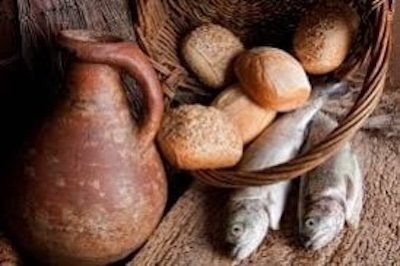The Wheel Keeps Turning
Greetings Pilgrims!
As most of you know by now, as a part of my social work practicum I am now interning at Durham CAN on Monday mornings, alongside my Tues-Thurs + Sundays Pilgrim schedule. I’ve admired CAN from a distance for awhile now and I am loving seeing how it operates up close. I am discovering too, that the kind of community organizing that CAN does, for me feels like an energizing purposeful expression of my faith. I came across this meaningful connections between this kind of organizing and how Jesus teaches ministry in this reflection by Rev. Dr. Jeff Kiebel, on his years of organizing with the Washington Interfaith Network, a sister organization to Durham CAN. This excerpt especially resonated for me.
Everyone in the story [of the loaves and fishes] learns something before the day is done. The disciples assume that the hungry crowd is helpless and must either be dispersed with their needs ignored or become dependent on the social service of the disciples. Jesus teaches them instead how to organize the crowd into a community and how to look more deeply to discover the abundant resources already present—resources the crowd itself may not have known existed. From the outset, the disciples see the crowd as their burden, a drain on their energy, and a responsibility beyond their capabilities. Jesus demonstrates how even the disciples’ own needs are met when they trust the resourcefulness of those with whom they are in ministry. Lest this point be lost, Mark drives it home in the final verse. The weary and hungry disciples, who at the start “have no leisure even to eat,” at the end collect twelve baskets full of broken pieces of bread and fish—one basket for each of them!
How does this message land for you and your experience? Are there times in your life where you’ve experienced “How very good and pleasant it is when kindred live together in unity”? Are there places you experience this now, and if not, is it something you want to cultivate?
-much love,
Felix

